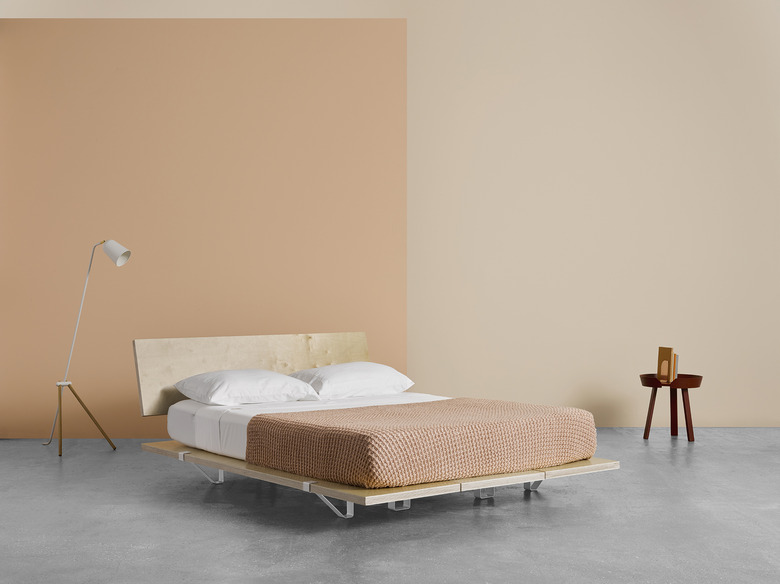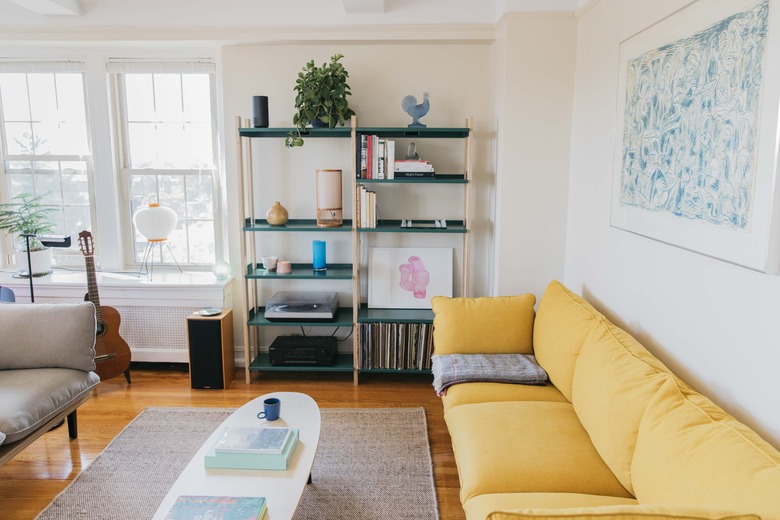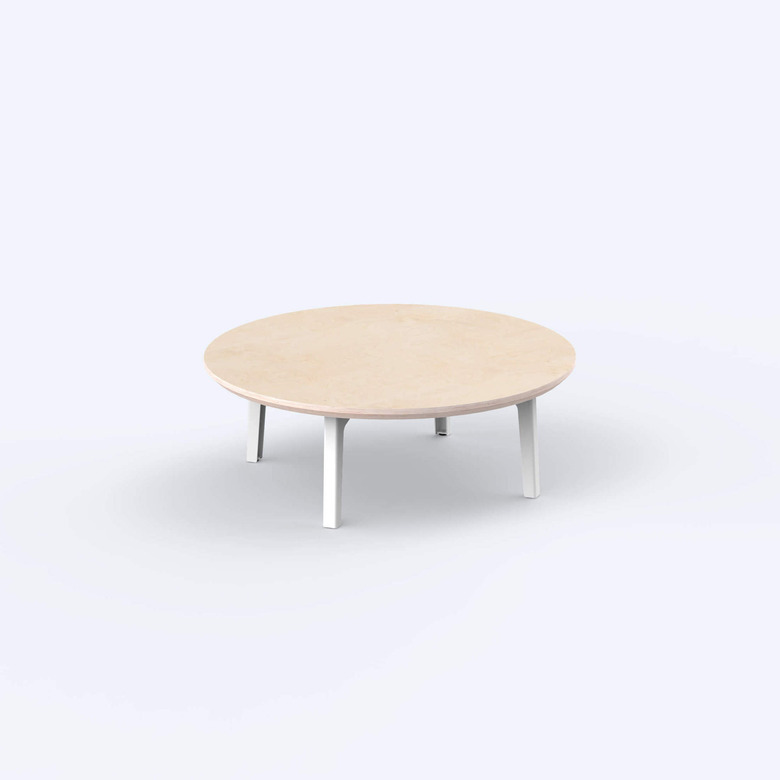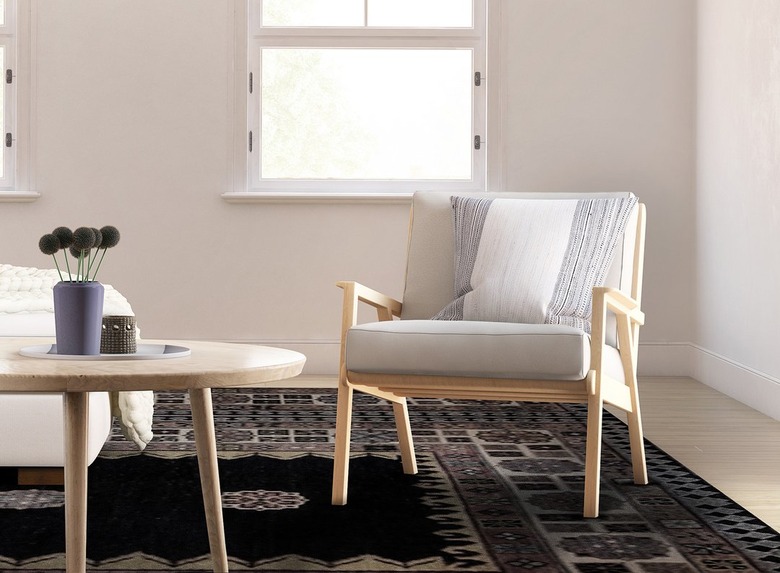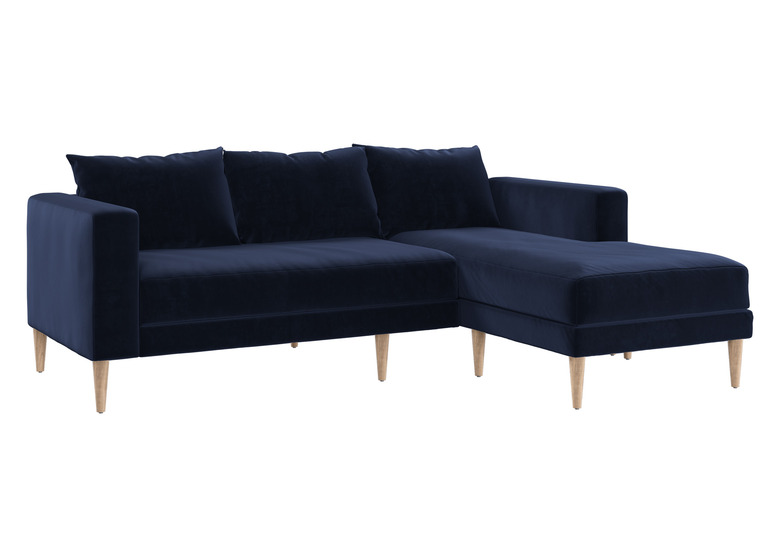Why Sustainable Furniture Matters — And What Brands You Need To Know
While every step toward a more sustainable lifestyle makes a positive impact — trading single-use plastic zip-top bags for reusable ones, opting for a refillable water bottle instead of buying packs of Dasani from the grocery store, or using energy-efficient lightbulbs over traditional ones —there's one area of home life that's still sorely lacking in the eco-friendly department (especially if you're on a budget): furniture.
"Most flat-pack furniture is designed with tons of connections that are prone to breaking down when you disassemble it to move," explains Floyd co-founders Alex O'Dell and Kyle Hoff. This will hardly come as news to anyone who has relied on big-box stores (or a certain Scandinavian mega-retailer) to furnish their first (or second ... or third) apartment in a budget-friendly manner. While cost and convenience are huge factors when it comes to millennial spending habits in particular, there's a hidden price tag to all those "made-for-right-now" cabinets and coffee tables. "It may be in the budget now to buy low-quality furniture, but you'll end up replacing that piece of furniture many times over — ultimately costing you more in the long run," the duo says.
The solution is one that's a bit easier said than done, but delivers both positive, eco-friendly feels and a more sustained, conscious relationship with your home overall. Choosing quality, built-to-last furniture isn't just a matter of aesthetic. It's also a matter of "voting with your dollar" — putting your economic weight behind brands that align with your values and cutting down on your output of cheap consumables. A more thoughtfully designed furniture piece will last longer in the first place, and also is more likely to be able to be repaired when regular wear-and-tear does inevitably take its toll. "All of Floyd's products are made from a series of serviceable parts," the team explains. "Welds break and cushions sometimes tear, but the product shouldn't be thrown away because of this — we design all of our products to be a kit of parts that can be replaced, rather than throwing out the whole thing."
But we'd be remiss if we didn't address the elephant in the room: budget. Millennials in particular are often in a precarious financial position which makes it difficult to splurge on a designer sofa, no matter how much they may want to invest in enduring furnishings. In this case, the Floyd team recommends looking toward secondhand goods to avoid contributing to the demand for cheap, mass-produced items. "If you can't invest in things that last right now, we suggest that you buy something used," they say. Look for sturdy wooden pieces that can be updated with a little DIY action, since these tend to be the most durable over time — chances are, you'll end up passing them along to another eager inherit-er when you're finally able to afford that upgrade. (How's that for sustainability?)
Relocation is also top-of-mind for today's younger shoppers, for whom moving (whether locally or across the globe) is often a looming concern. Therefore, styles that can be broken down are crucial — and they keep consumers from having to deliberate on which favored furniture pieces need to hit the curb. This has been a core tenant of Floyd's designs since the very beginning. "When you take apart a Floyd product to move, it goes back together like new," O'Dell and Hoff explain. While this can sometimes be at odds with the sturdiness of well-made furniture (as anyone who has tried to load a vintage armoire into a U-Haul can surely attest), it doesn't need to be. A new class of thoughtful designers are recognizing an evolving pattern of consumers relocating frequently, and are designing with this modern nomadic lifestyle in mind.
Ultimately, a change in consumer habits that favors sustainability and quality can move the needle — even in an industry known for its waste. "Don't underestimate your power as a customer to create a demand for change," O'Dell and Hoff advise. "If consumers demand better, longer-lasting materials and more sustainable practices from the businesses they love, we can put an end to the cheaply made synthetics that almost always wind up in a landfill."
Looking for inspo to upgrade your furnishings to more sustainable, eco-friendly alternatives? Discover some of our favorite options below.
A minimalist, slightly midcentury silhouette means this table will go with any decor, and the brand's 10-year warranty ensures it'll be around for a while. Durable steel legs and a signature easy-to-assemble process give it the Floyd touch.
Medley Ridge Accent Chair, $1,595
Medley's extensive line of furnishings is made from solid kiln-dried hardwoods — not plywood or veneer — and natural fabrics like wool and certified organic cotton. They're free of harsh chemical flame retardants or stain treatments that can be environmentally damaging, and did we mention? They look pretty nice, too.
Burrow Slope Nomad Sofa, $1,395
Direct-to-consumer brand Burrow's landmark sofa is still a standout, with its modular design that arrives in regular shipping boxes (and breaks down to those same components again and again when it's time to move). Sustainably sourced wood legs and fabrics made from upcycled materials complete the eco-chic vibe.
Jacob May Nomad Rectangular Dining Table, $4450
With a true craftsman-meets-eco sensibility, Jacob May's solid wood furniture is made using heritage joinery methods (and it's priced as you'd expect). But their aptly named Nomad collection uses metal-to-metal fastenings to allow for infinite rounds of disassembly and re-assembly, making it one of the first authentic heritage lines we've seen that's designed with mobility in mind.
Sabai Essential Sectional, $1,395
A newcomer on the scene, Sabai is a woman-owned sustainable sofa company that checks a lot of the eco-friendly boxes that get us excited. Their sofas ship flat-packed (check!) in plastic-free packaging (only recyclable cardboard in sight). Their frames are made from FSC-certified wood, and their naturally stain-resistant velvet (a boon at the pricepoint) is made from recycled water bottles.
